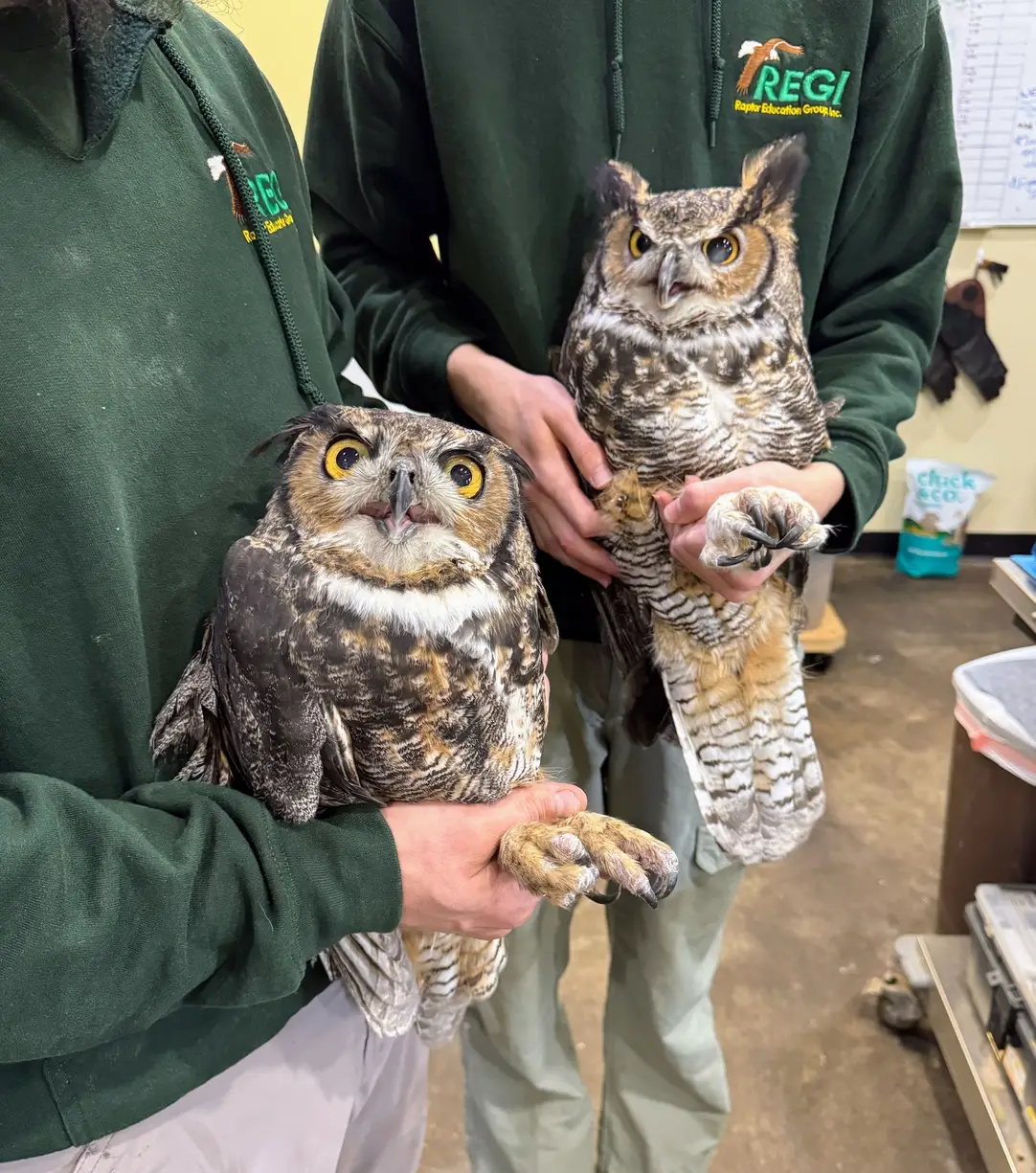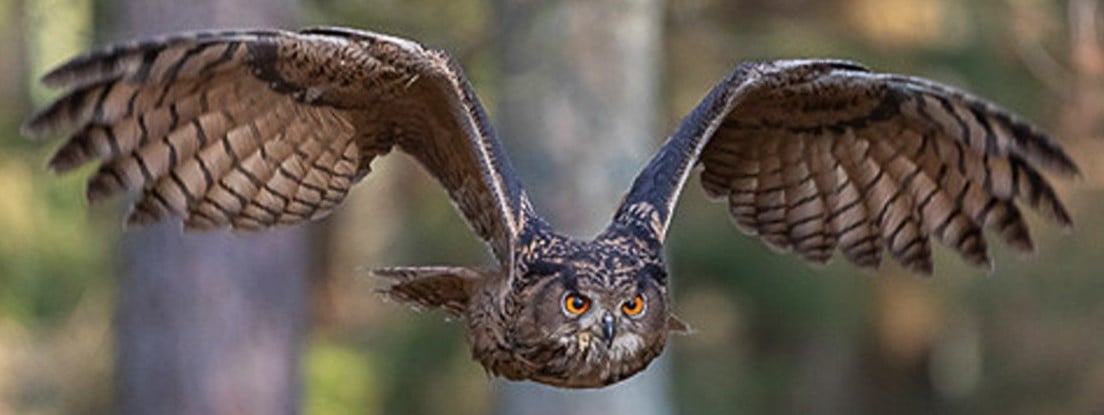From Raptor Education Group Inc
This week, families will gather to celebrate Thanksgiving. It is a day that has become synonymous with family coming together. It is an excellent time to introduce a few of the birds that make up REGI's fabulous and successful Raptor Foster-Parent Program.
We have used species-specific foster parents to raise orphaned raptors for over thirty years; we were the first wildlife center to utilize foster parents to raise young raptors while in care.
The species-specific part is essential as each species has different vocalizations and behaviors, the very thing an orphaned baby will need to know to survive and thrive in the wild world.
"Pops," also known as Papa, is a great-horned owl (GHO). He was already an older adult male and had a nest when admitted to REGI in late February 2011. He was found injured near a residence in Keshena, WI. Internal injuries and wing fractures suggest he was hit by a car.
While Pops was undergoing treatment in our critical care clinic in 2011, we admitted two starving great horned owlets. The adult male owl's demeanor changed immediately after hearing the soft sounds of the tiny owlets coming from an incubator in the same room.
Pops began calling the owlets, and they answered him. Even with serious injuries, he attempted to get out of his recovery box to reach them. Despite Pops and the owlets fragile medical conditions, they suddenly all had the will to live! That is how Pops got his name and became a valuable Raptor Education Group Inc (REGI) team member despite his disability.
Pops worked alone most years, rearing up to nine owlets in a season. He is as happy as an owl can be when the orphans are admitted in early spring, usually due to storms taking down their nest tree or other nest catastrophes that cause injury to the little ones. He has a job, and he does it well.
Cloud, an older adult female owl, was admitted from Freedom, WI, in June 2021. Due to her injuries, she also cannot return to the wild. Cloud also solidified her place at REGI as a foster parent in a similar scenario to that of needy owlets.
While she does less work when the owlets are tiny, she does her share as they leave the "nest" and begin to fly. Cloud is one-third larger than Pops, as is usual for great-horned owls and most raptors.
This year, Pops and Cloud reared five orphaned/injured great-horned owlets. The owlets from Wausau, Marshfield, Stevens Point, and Mosinee were admitted in March and April.
It was a hectic spring, summer, and fall for Pops and Cloud. Their roles fulfilled that of natural great-horned wild owl parents. They fed and preened the little ones, fluffy down and developing feathers; they even taught the spunky owls manners and good relationships with their siblings and other owls.
Once the owl family moved into the more extensive conditioning flight, they taught them the delicate skill of hunting mice. The youngsters need to know everything from vocalizations and body language to recognizing predators to survive in the wild and thrive. Pops and Cloud were wild adults and, therefore, knew all there was to know about what the kids needed to know.
Pops and Cloud are not mated, even though they live together in the off-season. Birds choose their mates, unlike many mammals and domestic animals. Mates are long-term relationships. Their pairing often lasts for a lifetime. Pops and Cloud are "parenting partners, " not mates other than to raise the owlets that are not their biological offspring.
Enjoy the photos of the owlets soon after capture and admission and as they grew and developed this summer.
As the owlets mature, they are transferred to larger flight areas to develop and condition their muscles and hone their mouse-hunting skills. The foster parents remain with the young owls throughout the spring, summer, and fall until the young birds are ready to be released to the wild.
They were released in early November.which is the natural time for young owls to leave their parents. Pops and Cloud are now relaxing and enjoying some quiet time after raising the active group of young owls.
Great-horned owls are our earliest nesters in WI, and when March arrives, so too will orphans for the fosters to raise.
Our world at REGI is filled with miracles every day. Our best wishes to you and yours this holiday season.
(Human Imprinting occurs when a human -feeds a baby bird early in life, which causes the chick to identify as a human. Food delivery is the stimulus for the brain of avian species to identify their parents. It is totally different than "taming" and until taming, cannot be reversed. It is why we BEG people NOT TO FEED any baby bird, including geese, EVEN FOR A DAY. Rather than helping the little ones, imprinting them will make them non-releasable to the wild. They will not survive in the wild because they do not behave or interact normally.)












